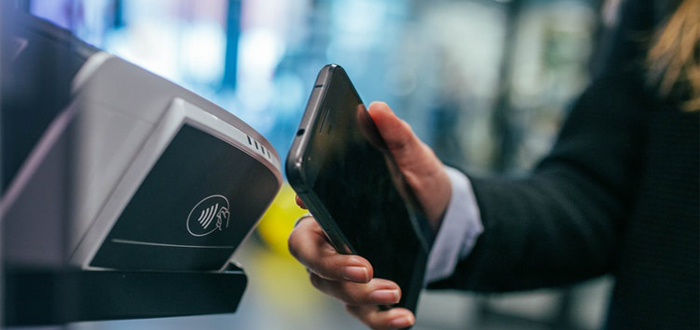-
ROSSLARE EUROPORT TARGETS HEALTH & SAFETY WITH CAMERA TELEMATICS PARTNERSHIP - 2 days ago
-
Landmark Study Reveals Wearable Robotics Significantly Boost Safety and Efficiency in Industrial Environments - July 24, 2024
-
Visku Tackle The Retail Seasonality Challenge One Pallet At A Time - July 22, 2024
-
KAMMAC AND BERGEN LOGISTICS STRENGTHEN FASHION & LIFESTYLE SERVICES IN THE UK - July 19, 2024
-
TENTBOX EXTENDS PARTNERSHIP WITH ARROWXL TO SUPPORT INCREASING DEMAND - July 17, 2024
-
The Perfume Shop improves customer journeys while driving profitability in partnership with Scurri - July 17, 2024
-
ZEROMISSION SECURES £2.3M ($3M) INVESTMENT TO ACCELERATE ELECTRIC FLEETS - July 16, 2024
-
BCMPA CELEBRATES SUCCESS OF 2024 CONFERENCE - July 15, 2024
-
Best of the Best: Jungheinrich Celebrates Triple International Award Win - July 12, 2024
-
GOPLASTICPALLETS.COM CALLS ON NEW CHANCELLOR RACHEL REEVES TO CONSIDER PLASTIC PACKAGING TAX REFORM - July 10, 2024
Tech Downtime is Stopping In-store Sales.
New research reveals retail technology downtime is leaving one in three UK shoppers unable to complete their purchase. The research, commissioned by smart locker technology and field service solutions provider ByBox, exposes the knock-on effects of retail device downtime and maintenance.
Investigating how in-store technology is affecting shopping habits and the impact it has on customers’ shopping experience, the research forms part of ByBox’s wider report on ‘Retail Technology – service or fail.’ According to the survey of 1,000 UK shoppers, two-thirds had experienced technology failing on at least one occasion, including mobile and contactless payment machines through to automated tills, touch screens and more.
The research revealed that over half of shoppers (69%) reported feeling irritated, angry or were unable to complete their purchase as a result of these breakdowns. With the growth of omnichannel and online revenues predicted to more than double (to 4.88 trillion dollars) by 2021[1], retailers face an ongoing battle to entice consumers at the store level. Technology is paramount to retailers’ growth strategies, increasing their reliance on same-day fixes and systems maintenance or face lost sales and brand loyalty.
Some 72% of respondents also stated that they fully support in-store technology innovations that make their shopping experience as seamless as possible. Highlighting the need for convenience in a fast-paced world, consumers aren’t willing to wait. As we become more connected across multiple channels, the in-store experience will become even more technologically engaging, personalised and uninterrupted.
“With the focus greatly pointed towards building in-store engagement strategies, complimenting retailers’ omnichannel shopping experiences, new methods of connecting with consumers in-store will increase the use of technology, providing opportunity as well as increased points of failure.” comments Simon Fahie, managing director – global technology, ByBox. “Our research shows that while consumers embrace new technology, downtime will not be tolerated, consumers will literally abandon a purchase should one occur. Presenting a challenge to retailers and their systems providers to improve same-day fixes and SLAs that keep up with the demands of today’s consumer.”
These findings come as ByBox launches Switch, a new solution designed to minimise high street technology downtime and reduce the risk of lost sales due to broken devices. Using ByBox’s Bluetooth locker network and technicians, retail technology providers are able to ensure same-day fixes via pre-positioned stock. Understanding the needs of UK high streets, ByBox has located its smart lockers in easy to access areas, enabling technicians to quickly and easily collect spare parts and meet demanding SLAs.
Switch is made possible by ByBox’s investment into its network of smart lockers around the country, which combine Bluetooth-enabled locks, a mobile app and cloud platform, allowing case-by-case access and full visibility of stock levels.
Methodology:
Consumer research into perceptions of in-store technology conducted in January 2018 through an online poll, among a nationally representative sample of 1000 UK consumers, by Sapio Research.

































